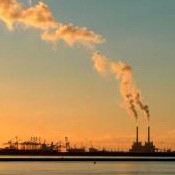New Compliance Association Unites California Offset Project Developers
Stemming from the Navigating the American Carbon World conference in 2012, the newly formed Compliance Offset Developers Association (CODA) seeks to unite project developers and to support an effective cap-and-trade program in California. CODA provides a platform for sharing technical knowledge and ideas as they pertain to the Air Resources Board.

Stemming from the Navigating the American Carbon World conference in 2012, the newly formed Compliance Offset Developers Association (CODA) seeks to unite project developers and to support an effective cap-and-trade program in California. CODA provides a platform for sharing technical knowledge and ideas as they pertain to the Air Resources Board.
1 July 2013 | The latest cap-and-trade development to come out of California is reflective of the Golden State’s reputation as the prevailing leader in domestic climate policy. The newly-minted Compliance Offset Developers Association (CODA) is an alliance of six project developers – A-GAS RemTec, Camco, Coolgas, Inc, Diversified Pure Chem, Environmental Credit Corp, and Terrapass – working together with regulators and other offset stakeholders to support an effective statewide offset market.
At the 10th anniversary of the Navigating the American Carbon World conference, North America’s largest carbon event, a number of players in California’s offset market recognized the benefits of exchanging ideas and technical know-how related to the Air Resources Board (ARB). Acknowledging ARB’s impact, their own strength in numbers, and a growing need to respond to future technical processes on a collaborative basis, project developers set out to create a forum for technical discussion and knowledge-sharing regarding ARB protocols and the generation of compliance offsets.
As reported by CODA, policies regulating offsets, transparency, and the timely review of project documents are critical aspects for project developers in generating and issuing offsets. An anticipated 200 million offsets will be required by California’s cap-and-trade program by 2020, further highlighting the need for increased capacity through collective efforts such as CODA, according to the group’s members.
Intended to function from a procedural and technical perspective rather than from a political stance, CODA aims to connect project developers to better understand the rules and regulations of the offset market. According to Derek Six, CEO of Environmental Credit Corp, “the project developers involved in CODA face a wide variety of common issues.” The association was formed out of a “desire to see a marketplace that is effective, practical, and efficient,” adds Six.
While CODA is currently only open to project developers that have at least three registered projects under ozone-depleting substances, forestry, or livestock protocols, there may be potential for including project developers involved in other project types in the future.
In reference to prospective protocols such as rice cultivation, coal mine methane, and REDD+, Charles Purshouse, CODA’s elected chairperson, stated, “If approved, we would welcome members developing those projects.” However, for the time being, the “focus is on the drawing board,” as lobbying for REDD+ and other potential protocols “doesn’t fall under the group’s remit,” adds Purshouse.
CODA holds bi-weekly meetings and discussions to formulate strategy. Companies interested in joining CODA can email nick@terrapass.com.
Please see our Reprint Guidelines for details on republishing our articles.

